by Ken Sehested
"Protestanismo, Teologia Pública e Relevância Profética: Diálogos
com as éticas teológicas de Martin Luther King Jr. e Richard Shaull"
(“Protestantism, Public Theology and Prophetic Relevance,
in light of the vision of Dr. Martin Luther King Jr. and Dr. Richard Shaull”)
Centro Cultural da Tijuca, Rio de Janeiro, Brazil
24-26 May 2007, Aliança de Batistas do Brasil
It is a rare privilege to take part in this historic occasion. My prayer is that, years from now, you will look back on this occasion as the starting point of a powerful movement in shaping the faith and witness of the church in Brazil. And maybe for the whole world.
Let me say a few words of gratitude before I begin my prepared comments. First, I want to pay homage to two Brazilian theologians that have shaped my thinking. They are Reuben Alves and Dom Hélder Câmara. In my writing and speaking over the last 30 years I have often used quotes from both. And I suspect all of us in this room would be in very different places had it not been for the pioneering pedagogical work of Paula Freire.
I also want to lift up the name of Sr. Dorothy Stang, the courageous and devoted woman who was murdered two years ago because of her defense of the rights of exploited peasants, and of the land itself, in the Amazon region. I’m sure your prayer is the same as mine: that the Gospel testimony and witness of Sr. Stang will overshadow the witness of the Roman Pontiff during his recent visit here.
I also want to greet you on behalf of the Alliance of Baptists in the U.S., and on behalf of my own congregation, the Circle of Mercy. I am here officially on behalf of the Alliance to further strengthen our partnership with the Aliança de Batistas do Brasil. This past Sunday members of my own congregation gathered around to lay hands on me with a prayer of blessing for this journey. Strangers whom you have never met, in a far away place, are praying for all of you in this room and giving thanks for your faithfulness to the Gospel.
All of my life I have strongly believed that this work of building relationships across national and cultural and racial and class boundaries is among our most important weapons in the struggle against those who would keep us divided.
When biblical people gather to interpret the word of God, the first question to be asked is not about the text. It is about the time—what time is it? The first question is always: Where in our lives, and in the lives of our people, is the Spirit being quickened and where is it being quenched?
To ask, “what time is it?” is not to look at the clock but to ask where are we in the season of God’s Dream for the world? Where are the places where that Dream, which Jesus referred to as the “Kingdom of God”—which Martin Luther King Jr. spoke of as the “beloved community”—where is that Dream being fulfilled, and where is that Dream being turned into a nightmare?
My title comes from a line by the African American poet, Langston Hughes: “Hold fast to dreams,” he wrote, “for if dreams die, life is a broken-winged bird. Hold fast to dreams, for when dreams go, life is a barren field frozen with snow.”
§ § §
Last Sunday, when I invited our congregation to the communion table, I reminded them that coming to the table is a form of fear displacement. By ritually recalling Jesus’ own last meal with his disciples, we are being cleansed of our fearfulness and being filled with courage.
As the first epistle of John (4:18) reminds us, the opposite of faith is not doubt. Rather, the opposite of faith is fear. This is why, every time in Scripture when an angel appears to humans with a message from God, their opening greetings is always, “Fear not!”
“Fear not” has been the nonviolent war cry of the people of God ever since Moses stood with the escaping Hebrew people on the banks of the Red Sea with Pharaoh’s army bearing down from behind. “Fear not,” be still—don’t panic—see this day that the Lord your God will fight for you. Fear not, you prisoners of hope—as the prophet Zachariah wrote—for the One who bore you in mercy has not abandoned you.
Fear not—take courage, be of good cheer (John 16:33), Jesus instructed his followers. You are safe, and because you are safe, you can risk much.
Fear displacement is the most important pastoral duty we have with our people in order to unlock their prophetic courage.
More than ever, we need to come to this table—and bring our people with us. For these are fearful times. Fear is a kind of polio of the soul. It stunts our growth and makes us ever more dependent on those that tell us constantly that safety and security can only be found with more money and more guns.
Though we do not speak of it much anymore, the struggle against idolatry is still the believing community’s greatest challenge. Idolatry is not about religious artifacts. It is about decisions over the location and source of our true security.
§ § §
These are fearful times. Nearly 20 years ago, with the collapse of the Soviet Union, many in my country thought that a great opening had arrived—that this reduction of threat might be the occasion when a new future could be created, one based on mutual respect within the family of nations. According to the Department of Defense, during the Cold War 60% of the U.S. military budget was devoted to “containing” the Soviet imperial threat. Now, we thought, billions of dollars can be redirected away from the preparation for war and toward the preparation for peace.
In that hope, in that dream, we were badly mistaken. We were seriously disappointed. Maybe we were very naïve. It seems that the leaders of my country get lonely when there is no enemy to focus on, no enemy to carry the weight of our sins. And so we thrashed around to find another enemy.
For a few short years that new enemy was the “war on drugs,” was the scourge of drug trafficking–of narco-terrorism—particularly by organized gangs here in Latin America.
But soon we found a more fitting enemy, in the form of Islamic “terrorists.” Yes, we said to ourselves, this is a better enemy. Because lands in which these Islamic terrorists live have great reservoirs of gold—black gold—petroleum. Gold was what brought the Conquistadors to the American continent. Gold was needed to fund the European imperial wars. Now much of that gold is in the Middle East, in the form of oil. As former U.S. Secretary of State Henry Kissinger said in the early 1970s, “Oil is too important a commodity to be left in the hands of the Arabs.”
The prophet Habakkuk describes such imperial aspiration in this way:
“…they are a law unto themselves and promote their own honor. Their own strength is their God” (1:7, 11c)
These are fearful times. But, as Scripture testifies, it is in the situation of fearfulness—in the midst of things falling apart—that God’s dream for Creation’s redemption and renewal is most apparent to those with eyes to see.
•It was in the context of the Hebrew people’s suffering cries that God called Moses to go tell Pharaoh to “let my people go”!
•It was the prophet Isaiah (33) who reported: “The envoys of peace weep bitterly. And the land mourns. Now will I arise, says the Lord, and bring them to the safely for which they long.”
•And it was during the Passover meal, when Jesus gathered his disciples for one last supper—“on the night he was betrayed” to the Roman imperial army—that Jesus spoke of his coming resurrection.
These are fearful times, and so we must hold fast to dreams.
In 2003 I traveled to Iraq with the Christian Peacemaker Team (CPT). The CPT deploys Christians trained in conflict mediation and violence reduction strategies to many places in the world where social conflict has broken out into violence. Our task in Iraq was to listen to the Iraqi people. CPT had had representatives stationed in Baghdad since 1996, and they had developed friendships with people in all sectors of life.
Our job was also to tell a different story in the media, to try and break through the lies that the Bush Administration was using to justify the resumption of war with Iraq.
It did not matter than the U.S. had played a major role in putting Saddam Hussein into power. It did not matter that the U.S. had sold him the components of the poisonous gas he used against his own citizens and against the Iranians. It did not matter than none of the September 11 terrorists who crashed planes into the world trade center in New York had any connection with Iraq.
Empires do not pay much attention to facts. The psalmist describes them in this way:
“Pride is their necklace; violence covers them as a garment. Their eyes swell out with fatness, their hearts overflow with follies. They scoff and speak with malice; loftily they threaten oppression. They set their mouths against heaven, and their tongues range over the earth” (73:6-9).
In a news conference in Baghdad, a top aide to former Secretary of Defense Donald Rumsfeld was responding to press reports of complaints from U.S. soldiers. Rumsfeld’s aide said in response:
“This is the future for the world we’re in at the moment. We’ll get better as we do it more often” (quoted in Harper’s Weekly, 22 July 2003).
The U.S. imperial dream is not new, of course. Despite the truly revolutionary nature of our founding as a republic—despite the profound commitment to the principles of democracy (which is, fundamentally, a commitment to nonviolence)—our nation has engaged in numerous imperial episodes. But when we did so, we always had to turn our backs on our own historical commitments.
But I think there is something new about our national character. In 2002, on the first anniversary of the September 11 assault, the Bush Administration issued a new National Security Strategy. For the first time in history a political doctrine was put in place that provides legal authority for attacking any other nation, even if they pose no immediate threat to our security. All the President has to do is say, “They are a threat to our national security.”
To better understand the implications of this new national security strategy, you need to understand some of the background. Listen to the advice given in 1948 by George Kennan, then the U.S. State Department’s planning staff director and later the U.S. Ambassador to the Soviet Union:
We have about 50% of the world’s wealth but only 6.3% of its population. In this situation, we cannot fail to be the object of envy and resentment. Our real task in the coming period is to devise a pattern of relationships which will permit us to maintain this position of disparity without positive detriment to our national security. To do so we will have to dispense with all sentimentality and day-dreaming; and our attention will have to be concentrated everywhere on our immediate national objectives.
We should dispense with the aspiration to “be liked” or to be regarded as the repository of a high-minded international altruism. We should stop putting ourselves in the position of being our brother’s keeper and refrain from offering moral and ideological advice. We should cease to talk about vague and unreal objectives such as human rights, the raising of living standards, and democratization. The day is not far off when we are going to have to deal in straight power concepts. The less we are then hampered by idealistic slogan, the better.
The prophet Haggai has this to say: “You have sown much and harvested little; you eat, but you never have enough; you drink, but you never have your fill; you put the wages you earn in a bag full of holes” (1:6).
§ § §
Sisters and brothers, these are fearful times. John of Patmos’ dream of a new heaven and a new earth (21:1), of the day when all tears will be dried and death itself will be no more (21:4), is now considered to be an “idealistic slogan,” a “day-dream,” and an “unreal objective” in the corridors of power. The really unfortunate thing is that many in the church feel the same way.
So where do we turn to for hope? Where do we go to “hold fast” to the dream? What disciplines do we need to nurture God’s dream of salvation and liberation?
One of the most important sources of hope for me is the life and legacy of Dr. Martin Luther King Jr., an African American Baptist preacher in the U.S. Dr. King’s dream was pivotal in saving my soul—saving me from an empty religious dogma and a religious piety filled with arrogance.
When I was a teenager, I worked at a gas station on Saturdays, pumping gas and washing cars. This was in 1965 during the height of the Civil Rights Movement.
I was barely aware of Dr. King and other civil rights activists. It wasn’t that I was opposed to them. It’s just that they did not seem to matter in my religious worldview. I was already preaching at that young age, calling people to give their hearts to Jesus. I wanted to be the next Billy Graham. And Dr. King’s dream had nothing to do with the religious dream that filled my heart.
Early one morning, before the sun had risen, I was helping Mr. Cagle, the station owner, open up the shop. The radio was on, and a news story told about some incident involving Dr. King from the day before. I don’t remember the content of the story. But I do remember Mr. Cagle’s response:
“That Dr. King, he ain’t no Christian! Everywhere he goes he causes trouble!”
It would be many years before I realized you could say the same thing about Jesus. Jesus frequently warned his disciples that their lot would include persecution (Matt. 5:11). As Clarence Jordan, one of our Baptist saints in the U.S., says so well: “The Spirit doesn’t roost on a person who’s afraid of getting hurt.”
These are fearful times, but the Table of our Lord brings fear displacement therapy.
Dr. King is well known outside the U.S. The famous song from the Civil Rights Movement—“We Shall Overcome”—has been sung in the struggle against South African apartheid. It was sung in the struggle to overcome Soviet domination in Eastern Europe. It was sung in Tianamen Square in Bejing, China. And I have sung it with Iraqi citizens in Baghdad and Basra.
I know many of you have read Dr. King’s “I Have a Dream” speech, delivered during the 1963 March on Washington.
"I have a dream that one day on the red hills of Georgia, sons of former slaves and sons of former slave-owners will be able to sit down together at the table of brotherhood. . .
"I have a dream that my four little children will one day live in a nation where they will not be judged by the color of their skin but by the content of their character.
"I have a dream that one day every valley shall be exalted, every hill shall be made low, the rough places shall be made plain, and the crooked places shall be made straight, and the glory of the Lord will be revealed and all flesh shall see it together."
Dr. King was affirming what the psalmist predicts: “I believe that I shall see the goodness of God in the land of the living” (27:13). He was underscoring what was promised through the prophets (Joel 2:28) and reiterated on the Day of Pentecost (Acts 2:17), that the purpose of God was to “pour out my spirit on all flesh.”
Dr. King’s “I Have a Dream” speech is now taught in school literature classes. It is quoted by presidents and major business leaders. Dr. King’s birthday is now an official national holiday in the U.S., and military bands march in the parades to mark the occasion.
Empires have a way, over time, of co-opting the threat against their power. Listen to this poem by the African American poet Carl Wendell Hines Jr.
Now that he is safely dead, let us praise him
Build monuments to his glory
Sing hosannas to his name.
Dead men make such convenient heroes.
They cannot rise to challenge the images
we would fashion from their lives.
And besides, it is easier to build
monuments than to make a better world.
So, now that he is safely dead,
We, with eased consciences,
Will teach our children that he was a great man,
knowing that the cause for which he died
Is still a dream,
A dead man’s dream.
Dr. King’s dream no longer threatens us very much. We forget that by 1965 he was developing a much more profound analysis of the problems that cause racial discrimination. He was beginning to talk about the “giant triplets of racism, materialism and militarism.” Following early successes in attempts to desegregate lunch counters and buses, and some initial success in voter registration drives, Dr. King realized discrimination based on skin color had more complex causes. He began to see the deeper economic causes of racism. And for the first time he began to speak out against the war in Vietnam.
Very few people in the U.S. remember that on April 4, 1967, exactly one year before his assassination, King gave a speech at Riverside Church in New York City in which he explicitly denounced the war in Vietnam. In that speech he referred to the U.S. as “the greatest purveyor of violence in the world.” When he did, he was harshly criticized by other civil rights leaders and by that part of the media that had been supporting him.
In his address that evening he greatly expanded the theological vision of us all. He spoke about the need for a “radical revolution of values.” Such a revolution, he said, would make us come to see that “an edifice which produces beggars needs restructuring.” You’ll be especially interested to know that he specifically mentioned U.S. military activity in Venezuela, Guatemala, Colombia and Peru. And he said that America’s “alliance with the landed gentry or Latin America” is patently unjust.
In the U.S. we tend to forget these comments. Like with Jesus, Dr. King is greatly admired. That’s what we do to people who challenge us when they are alive. After they die, we mold their memory to suit our purposes. We heap praise on them and put them on pedestals—as a way to distance ourselves from them. There is some truth in that old saying: “A conservative is someone who admires a dead radical.”
§ § §
We have much intellectual work to do. We must always be critically examining our theological statements. While God is eternal, our statements about God are not. We must constantly be reading and rereading our history, for to know where we are going, we must know more clearly where we have been. We must be engaged in a critical reading of Scripture. The “critical” part is not about Scripture, but with our own limited capacity to see what is there, for we are always tempted to use the Bible to suit our own ideologies—however liberal or conservative or moderate.
We must always be sharpening our ethical insights, and expanding our knowledge of human psychology, to be better agents of moral discernment and more effective counselors.
But more than anything else, we must be bring our people to the table, to the place where our fears can be replaced with courage, to the place where our own fretful and fragile egos can be relinquished, where we can be fitted with the bold and bright garments of the Spirit. We must bring our people to the table, to find a community of dreamers. For as Dom Hélder Câmara wrote, “When we are dreaming alone, it is only a dream. When we are dreaming with others, it is the beginning of reality.”
During the early days of the bus boycott in Montgomery, Alabama, Dr. King came to such a table. He was already ordained as a minister. He was pastor of a large congregation. He even had a doctorate from a prestigious theology school. But the Spirit was beckoning him toward a more profound conversion.
Dr. King describes this “table” experience in his book, Stride Toward Freedom. As the boycott expanded and grew more effective, so did the pressures. He was getting a relentless stream of harassing phone calls. Then one night, just as he drifted off to sleep, the phone rang and the voice on the other end made an explicit death threat.
Unable to sleep, he went into the kitchen and made himself a cup of coffee. Then he sat down at his kitchen table. Permit me to read an excerpt describing that experience:
In this state of exhaustion, when my courage had all but gone. I decided to take my problem to God. With my head in my hands, I bowed over the kitchen table and prayed aloud. The words I spoke to God that midnight are still vivid in my memory. “I am here taking a stand for what I believe is right. But now I am afraid. The people are looking to me for leadership, and if I stand before them without strength and courage, they too will falter. I am at the end of my powers. I have nothing left. I’ve come to the point where I can’t face it alone.”
At that moment I experienced the presence of the Divine as I had never experienced Him before. It seemed as though I could hear the quiet assurance of an inner voice saying: “Stand up for righteousness, stand up for truth; and God will be at your side forever.” Almost at once my fears began to go. My uncertainty disappeared. I was ready to face anything.
Sisters and brothers, these are fearful times. The world is currently ruled not by a dream but by a nightmare. The powers of vengeance and shame and death are heavily armed. But we, too, have a dream. A dream that the wolf and the lamb shall one day lie together, and the earth shall be full of the knowledge of the Lord as the waters cover the sea (Is. 11:3-9).
We, too have a dream—the dream that Hannah prayed, that one day the bows of the mighty will be broken, and that God will raise the poor from the dust (1 Sam. 2:1-8).
We still have this dream, that one day nations shall beat their swords into plowshares (Micah 4:3-4), that the outcast will be gathered and God will change their shame into praise (Zeph. 3:19), and creation itself will be freed from its bondage to decay (Romans 8:21).
This Gospel dream still lives! We have access to it at the Table of nourishment, in the memory of the Lord who called us “friend.” Come to the table! Hold fast to dreams!
# # #
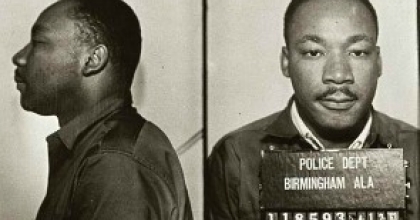 when King felt like the wine had run out on his strength and courage. He’d received a late night threatening phone call. He was overcome with a sense of powerlessness. He prayed to God at his kitchen table and received the sense of a divine presence like he’d never known before. So I read his words:
when King felt like the wine had run out on his strength and courage. He’d received a late night threatening phone call. He was overcome with a sense of powerlessness. He prayed to God at his kitchen table and received the sense of a divine presence like he’d never known before. So I read his words: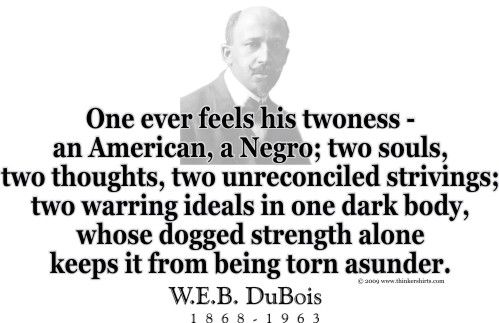 famously wrote in 1903: “The problem of the twentieth century is the problem of the color line” (The Souls of Black Folk). And we know that it is still a horrifying problem of the twenty-first century, along with the gender line, the sexual orientation line, the immigration line, the religious line, the economic line, the class line. The lines are drawn along the ancient human problem of entitlement, with one group feeling entitled to have power and control over another group. The problem of the twenty-first century is the problem of the past centuries, the problem of the power line.
famously wrote in 1903: “The problem of the twentieth century is the problem of the color line” (The Souls of Black Folk). And we know that it is still a horrifying problem of the twenty-first century, along with the gender line, the sexual orientation line, the immigration line, the religious line, the economic line, the class line. The lines are drawn along the ancient human problem of entitlement, with one group feeling entitled to have power and control over another group. The problem of the twenty-first century is the problem of the past centuries, the problem of the power line.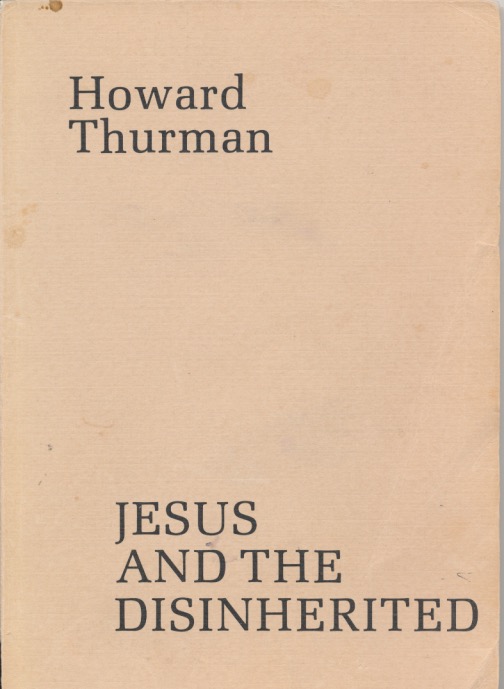 wall.” (As you can see, my copy is tattered and stained and so well worn that it's coming apart.) The book examines power lines, and what happens to the people who are experiencing the relentless pain and humiliation of being disinherited.
wall.” (As you can see, my copy is tattered and stained and so well worn that it's coming apart.) The book examines power lines, and what happens to the people who are experiencing the relentless pain and humiliation of being disinherited.

 similar to that of Psalm 128: “They have blessings (and, in subsequent verses, “peace,” “joy,” and “well-being”), those who pray.”
similar to that of Psalm 128: “They have blessings (and, in subsequent verses, “peace,” “joy,” and “well-being”), those who pray.”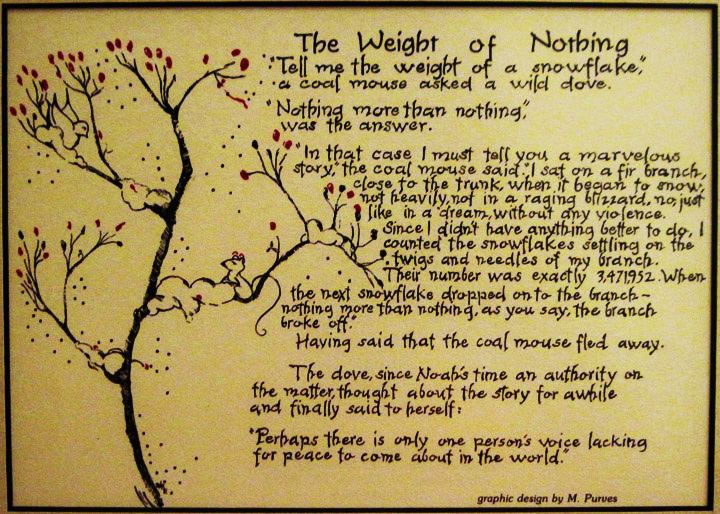 2,204,622,800,000,000 pounds.] A typical snow crystal weighs roughly one millionth of a gram. This means a cubic foot of snow can contain roughly one billion crystals. A rough estimate of the number of snow crystals that fall to Earth per year is “about 1 followed by 24 zeros,” Nelson told LiveScience. “If another scientist says that I'm off by one or two zeros, then I won't quibble.” —
2,204,622,800,000,000 pounds.] A typical snow crystal weighs roughly one millionth of a gram. This means a cubic foot of snow can contain roughly one billion crystals. A rough estimate of the number of snow crystals that fall to Earth per year is “about 1 followed by 24 zeros,” Nelson told LiveScience. “If another scientist says that I'm off by one or two zeros, then I won't quibble.” —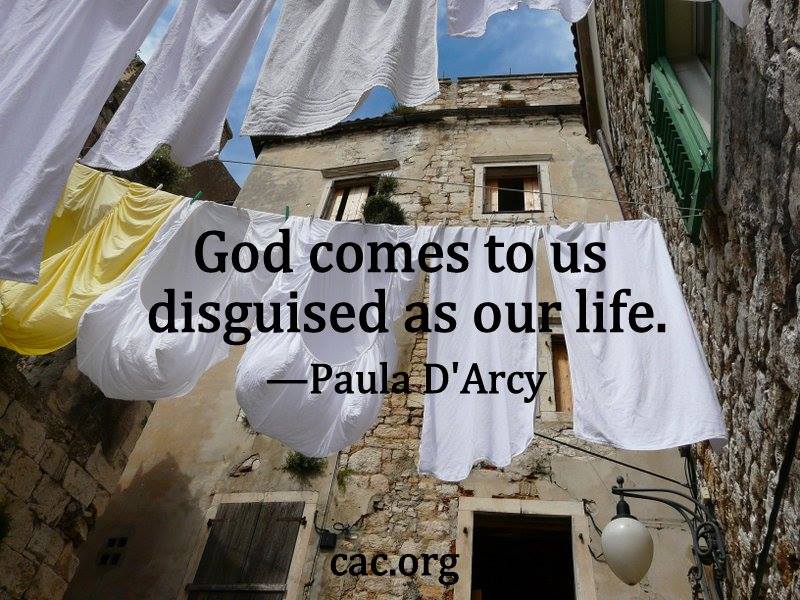 the United States, with more than seven million members—has placed five Israeli banks on a list of companies that it will not invest in for human rights reasons, the board said in a statement on Tuesday. It appeared to be the first time that a pension fund of a large American church had taken such a step regarding the Israeli banks, which help finance settlement construction in what most of the world considers illegally occupied Palestinian territories.” —
the United States, with more than seven million members—has placed five Israeli banks on a list of companies that it will not invest in for human rights reasons, the board said in a statement on Tuesday. It appeared to be the first time that a pension fund of a large American church had taken such a step regarding the Israeli banks, which help finance settlement construction in what most of the world considers illegally occupied Palestinian territories.” —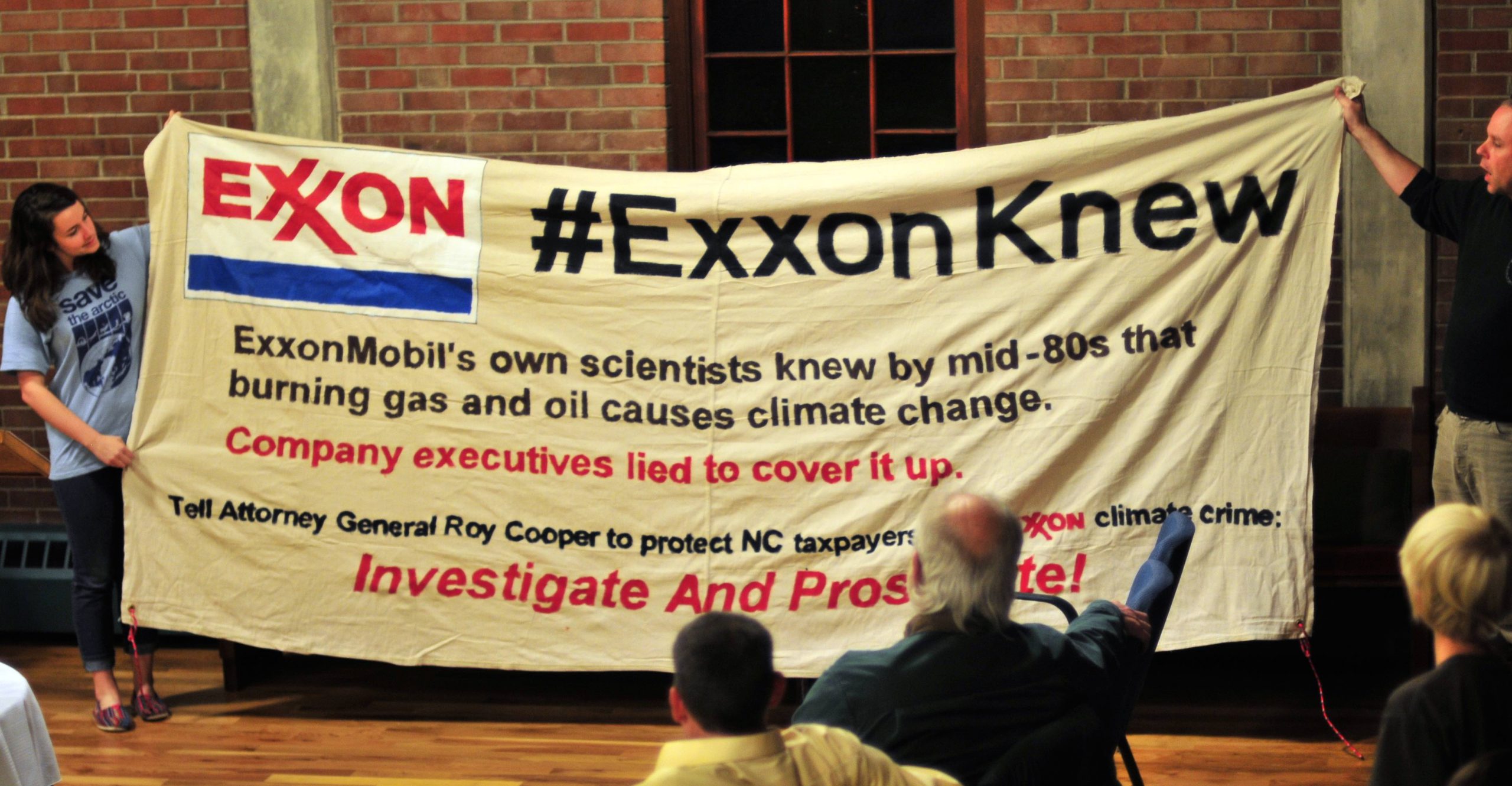
 indicating their product caused climate change, read Robert Brulle’s “
indicating their product caused climate change, read Robert Brulle’s “ in the United States over the next two decades, with derailments expected to occur an average of 10 times a year, costing billions of dollars in damage, and putting a large number of lives at risk. The grim projection was revealed exclusively by the Associated Press, which cites a previously unreported analysis by the Department of Transportation from last July. —
in the United States over the next two decades, with derailments expected to occur an average of 10 times a year, costing billions of dollars in damage, and putting a large number of lives at risk. The grim projection was revealed exclusively by the Associated Press, which cites a previously unreported analysis by the Department of Transportation from last July. — tween climate change and the Syrian civil war. Indeed, when a major peer-reviewed study came out on in March making this very case, Retired Navy Rear Admiral David Titley said it identifies “a pretty convincing climate fingerprint” for the Syrian drought. Titley, a meteorologist who led the U.S. Navy’s Task Force on Climate Change when he was at the Pentagon, also said, “you can draw a very credible climate connection to this disaster we call ISIS right now.” —
tween climate change and the Syrian civil war. Indeed, when a major peer-reviewed study came out on in March making this very case, Retired Navy Rear Admiral David Titley said it identifies “a pretty convincing climate fingerprint” for the Syrian drought. Titley, a meteorologist who led the U.S. Navy’s Task Force on Climate Change when he was at the Pentagon, also said, “you can draw a very credible climate connection to this disaster we call ISIS right now.” — orial in Washington, DC. —bangitout
orial in Washington, DC. —bangitout
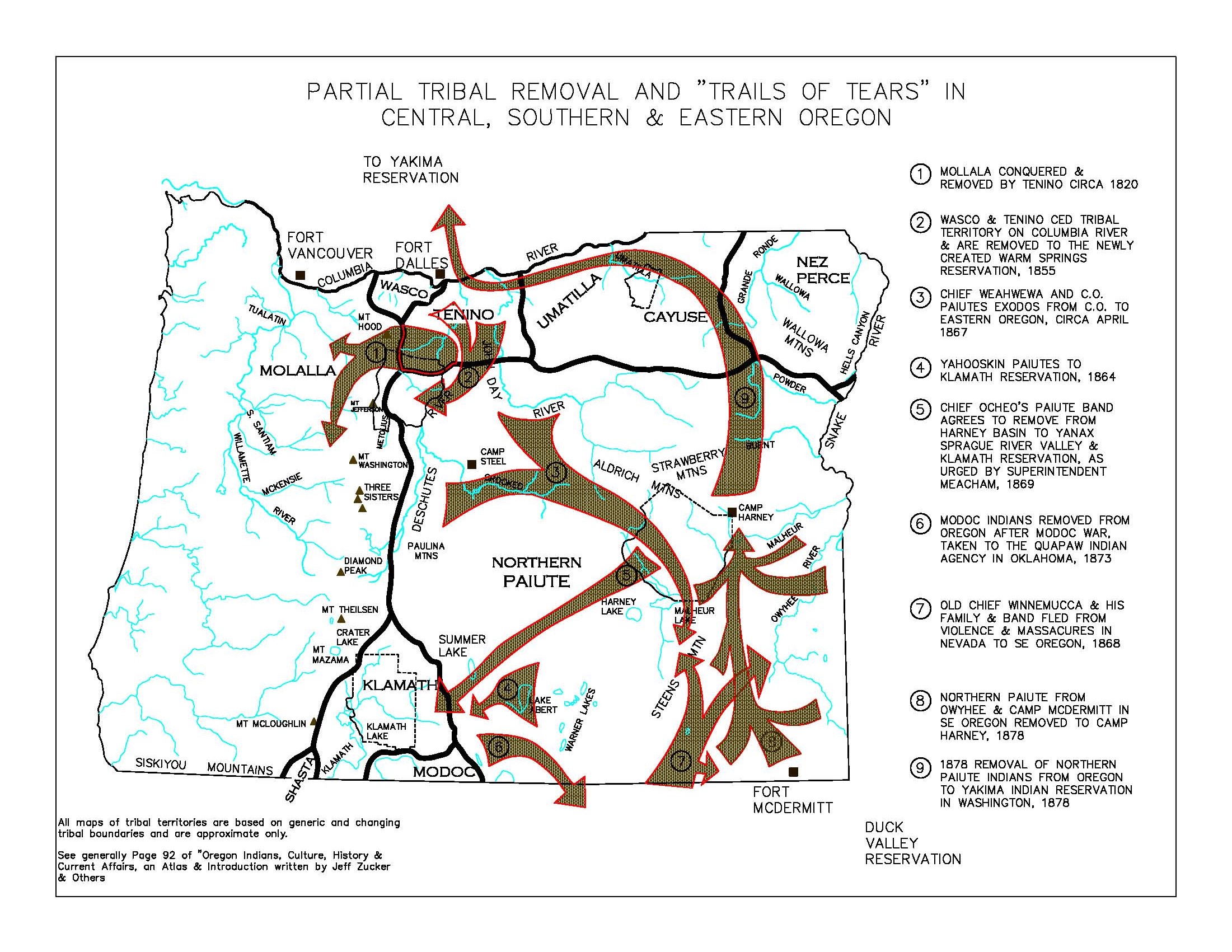 their state to prevent angry white men from getting in, a poll released on Monday shows. The survey indicates that Oregonians are fed up with irate male Caucasians pouring into their state and bringing with them guns, violence, and terrorism. ‘This used to be such a nice state,’ said Oregon State Senator Carol Foyler, a pro-wall lawmaker. ‘Since the angry white men came here, parts of it are unrecognizable.’” —
their state to prevent angry white men from getting in, a poll released on Monday shows. The survey indicates that Oregonians are fed up with irate male Caucasians pouring into their state and bringing with them guns, violence, and terrorism. ‘This used to be such a nice state,’ said Oregon State Senator Carol Foyler, a pro-wall lawmaker. ‘Since the angry white men came here, parts of it are unrecognizable.’” —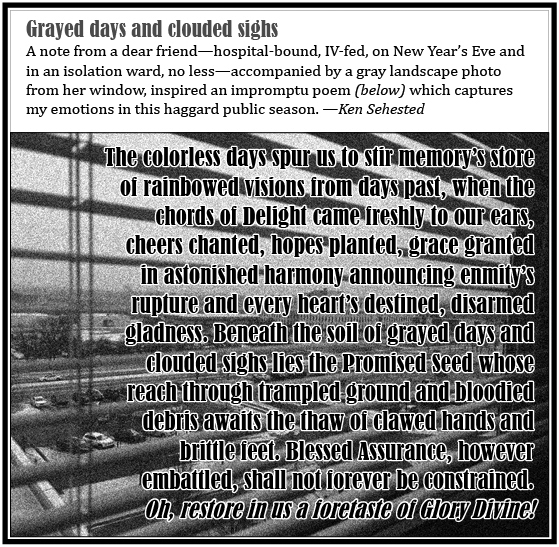 'twixt old systems and the Word; / Truth forever on the scaffold, Wrong forever on the throne,— / Yet that scaffold sways the future, and, behind the dim unknown, / Standeth God within the shadow, keeping watch above his own. —James Russell Lowell, “The Present Crisis”
'twixt old systems and the Word; / Truth forever on the scaffold, Wrong forever on the throne,— / Yet that scaffold sways the future, and, behind the dim unknown, / Standeth God within the shadow, keeping watch above his own. —James Russell Lowell, “The Present Crisis”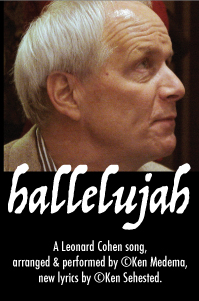 ersonal note. For Christmas my wife enlisted a friend, singer-songwriter Ken Medema, to record a new arrangement of Leonard Cohen’s “Hallelujah” using new lyrics drawn from Psalm 23.
ersonal note. For Christmas my wife enlisted a friend, singer-songwriter Ken Medema, to record a new arrangement of Leonard Cohen’s “Hallelujah” using new lyrics drawn from Psalm 23.  Islam, would present it as the religion of killing, violence, whips, extortion and injustice?” —Reuters new story, quoting Iranian
Islam, would present it as the religion of killing, violence, whips, extortion and injustice?” —Reuters new story, quoting Iranian  st, Chicago
st, Chicago Our friends at the Mennonite Central Committee’s Peace Education office have put online a large collection of personal stories of faith from veterans. I've put the descriptive list, with weblinks, at “
Our friends at the Mennonite Central Committee’s Peace Education office have put online a large collection of personal stories of faith from veterans. I've put the descriptive list, with weblinks, at “ ¶ Altar call. “
¶ Altar call. “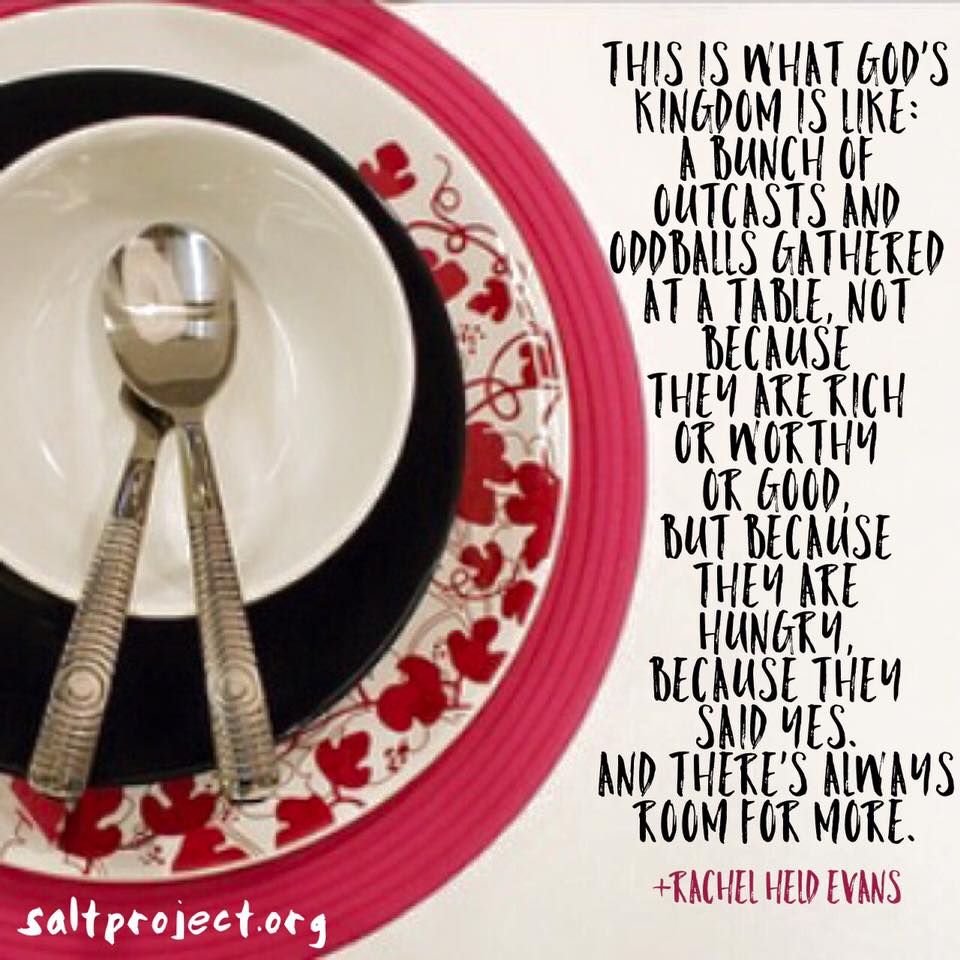 • “
• “